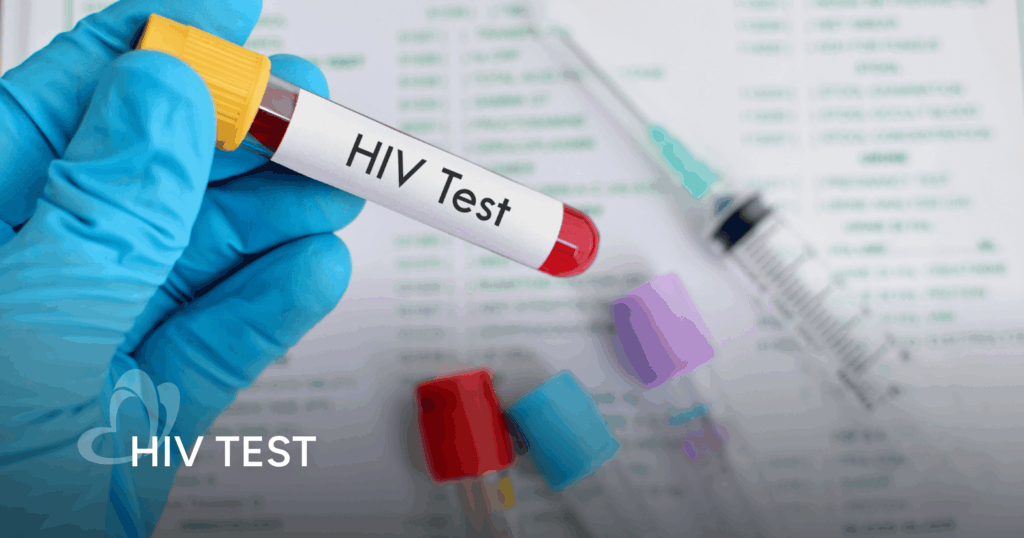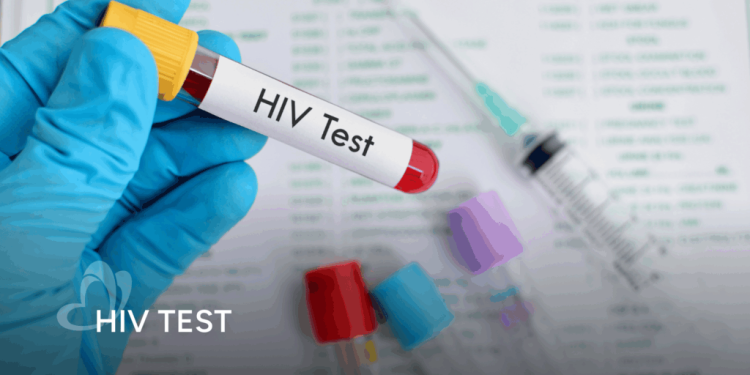
The Ghana HIV and AIDS Network (GHANET) is taking a proactive and strategic approach to combat the nation’s HIV epidemic, focusing on a demographic often overlooked in health-seeking behaviours.
In a significant effort to increase testing rates, GHANET has successfully distributed nearly 49,000 HIV self-test kits to men across its project operational areas, with a deliberate emphasis on empowering individuals to know their status.
Mrs. Victoria Araba Dennis, the Vice President of GHANET, revealed that a total of 48,580 HIV test kits were distributed to men, achieving 63 per cent of their ambitious target of 77,665.
This strategic focus on men directly addresses a critical gap in Ghana’s national HIV response, as men generally exhibit poorer health-seeking behaviours compared to women.
“The focus on men was a deliberate strategy aimed at increasing HIV testing uptake among men who generally exhibited poor health-seeking behaviours,” Mrs. Dennis told the Ghana News Agency.
This initiative is crucial given that studies in Ghana have consistently shown lower HIV testing rates among men compared to women, despite men also being significantly affected by the virus.
For instance, data from the 2022 Ghana Demographic and Health Survey indicated that only 12% of men had ever tested for HIV, compared to 17% of women.
The distribution data highlights a strong uptake among younger, sexually active populations. Mrs. Dennis noted that “clients between 20 and 24 receiving the highest proportion of the test kits, followed closely by those aged 25 to 29 and 30 to 34.”
While the focus was on adults, it was also reported that “44 of the test kits were taken up by minors aged 0-14 years,” all of which were facilitated “with parental request and consent.”
A particularly encouraging outcome of the project is the high preference for unassisted testing.
“The majority of clients, representing 77.3 per cent, preferred unassisted testing, while 22.7 percent opted to be assisted,” Mrs. Dennis stated.
This aligns perfectly with the core objective of HIV Self-Testing (HIVST): to enable individuals to test independently and privately.
“The goal of the HIV Self-Testing was to allow individuals to independently test on their own; thus the high figure was a plus to the project,” she added.
The initiative also reached a significant number of new testers, with 46,263 individuals accessing testing for the first time, while the remaining 31,420 were repeat testers.
Looking back at the previous year’s performance, Mrs. Dennis observed that “students continued to receive more kits, underscoring the focus on younger, sexually active populations,” particularly those in tertiary institutions.
GHANET expressed profound gratitude to the project sponsors, the Ministry of Health, and other relevant institutions for their support in achieving these milestones, as well as acknowledging the “invaluable contributions of all implementing community-based organisations and the Secretariat.”
Despite these targeted efforts and advancements in testing, Ghana’s latest “2025 National and Sub-National HIV Estimates and Projections report,” recently launched in Accra, paints a sobering picture of the epidemic’s current state. The report reveals:
- Total People Living with HIV (PLHIV): An estimated 334,721 people are currently living with HIV in Ghana.
- AIDS-Related Deaths: In 2024 alone, 12,614 AIDS-related deaths were recorded, a stark reminder of the disease’s continued fatality.
- Adult HIV Prevalence: The national adult HIV prevalence rate (ages 15–49) stands at 1.49%.
The report highlights a persistent and alarming gender disparity:
- Women Disproportionately Affected: Women continue to bear the brunt of the epidemic, making up a staggering 68.5% (229,261) of the total number of people living with HIV, compared to 31.5% (105,460) for men.
- New Infections: In 2024, females accounted for 67.4% (10,303) of new HIV cases, while males represented 32.6% (4,987). This disparity in new infections indicates that women are still more vulnerable to acquiring the virus.
- Age and Gender Burden: Alarmingly, 69% of adult infections are among women, and 34% affect young people (15–24 years old), with 28% of these young infections occurring among young women. This points to critical vulnerabilities among adolescent girls and young women.
While significant strides have been made in Prevention of Mother-To-Child Transmission (PMTCT), with an impressive 99.3% of HIV-positive mothers accessing services to protect their babies, a critical challenge remains in overall treatment coverage.
- Low ART Coverage: Only 47.5% of people living with HIV are currently on antiretroviral therapy (ART). This figure is significantly below the global UNAIDS target of 95% of people living with HIV knowing their status, 95% of those diagnosed receiving ART, and 95% of those on ART achieving viral suppression (the “95-95-95” targets for 2030).
- Undiagnosed Population: This low ART coverage is partly attributed to an estimated 107,128 people who remain unaware of their HIV status, posing a major hurdle to Ghana’s ambitious HIV elimination goals. Undiagnosed individuals cannot access life-saving treatment and may unknowingly transmit the virus.
The low ART coverage also contributes to continued AIDS-related deaths, as studies indicate that timely initiation and consistent adherence to ART are crucial for improving health outcomes and preventing progression to AIDS.
GHANET’s focus on increasing testing, particularly among men and younger populations, is a vital step in bridging the gap in undiagnosed cases and linking more people to care and treatment. However, the comprehensive national data underscores that while testing initiatives are making progress, a broader, multi-faceted approach, including intensified awareness campaigns, improved access to ART, and continued efforts to address gender disparities, remains crucial to ending the HIV epidemic in Ghana.
DISCLAIMER: The Views, Comments, Opinions, Contributions and Statements made by Readers and Contributors on this platform do not necessarily represent the views or policy of Multimedia Group Limited.
DISCLAIMER: The Views, Comments, Opinions, Contributions and Statements made by Readers and Contributors on this platform do not necessarily represent the views or policy of Multimedia Group Limited.
- President Commissions 36.5 Million Dollars Hospital In The Tain District
- You Will Not Go Free For Killing An Hard Working MP – Akufo-Addo To MP’s Killer
- I Will Lead You To Victory – Ato Forson Assures NDC Supporters
Visit Our Social Media for More




